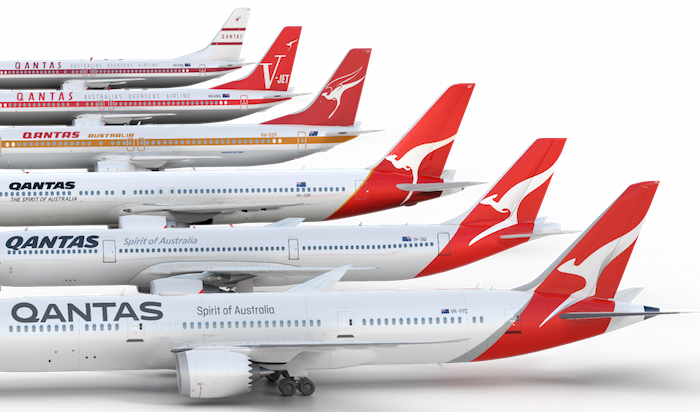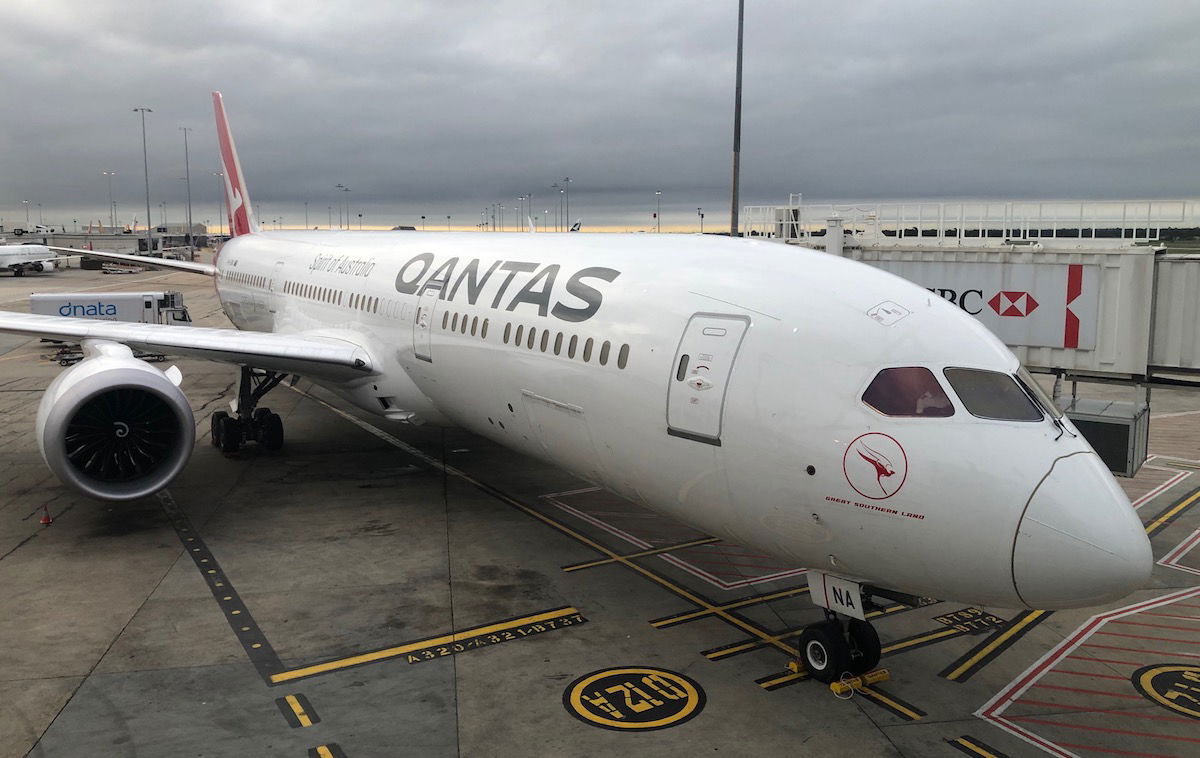It’s no big industry secret that airlines overbook flights.
They have complex algorithms to determine how full each flight is likely to be, and know that not every passenger booked on a flight will actually board.
Some passengers will change to a different flight last minute, some may not check in at all for whatever reason (perhaps they’re throwing away the last leg), and some may miss the flight due to check in deadlines.
So, if an airline has, say, 180 seats on a plane, they may choose to sell more than 180 seats on the assumption that not all 180 passengers will board, so they can maximize their revenue from a given flight.
If more passengers do attempt to board than there are seats available, then each airline will have a different policy, but will incentivise some passengers to take a different flight.
The most infamous example of this was the famous ‘Dr. Dao’ flight on United, where a passenger was physically dragged through the cabin as there were no volunteers willing to take another flight.

Qantas has launched a unique solution to their overbooking policy called ‘Qantas Flight Switch’ — they have now started contacting certain passengers a week in advance offering an AU$70 gift voucher in exchange for moving to a different (domestic) flight leaving within an hour or two of the flight they originally booked.
On popular routes like Melbourne to Sydney, the different flight to move to might be only 15 or 30 minutes later. If I was booked on a cheap domestic fare and was offered a $70 gift voucher to move to a flight 30 minutes earlier or later, I would jump at the opportunity.
Using very round numbers here, the airline might launch a route/flight with, say 20% of tickets at a discount rate (say $100 for an economy flight). Once sold, a further 50% might be sold at a standard rate of $150. A further 15% of seats are then sold at a higher rate in return for flexible fare conditions at, say, $200 per seat, while the remaining 15% are sold last minute at very high rates, say $300.
Very round numbers here, remember!
An airline would ideally like to sell all tickets at the highest $300 per seat rate, but airlines realise that savvy travellers, booking sale fares in advance, on competitive routes will only pay $100, or $150. So they sell a mix of fares at different rates, depending on demand.
Depending on the sophistication of the airlines’ yield management systems, they may predict that while they may only have a few seats available for sale in the few days before a flight departs, there is demand from last minute passengers willing to pay a higher price.
So Qantas is smart in offering those passengers on cheaper tickets an incentive to move to another flight that has less demand, therefore freeing up seats the airline predicts they can sell at a higher ‘yield’ last minute.

Bottom line
I know some people know the incentives airlines will offer to bump passengers last minute better than I do.
But what I can see Qantas doing is innovative in giving passengers choice (with plenty of notice) about whether to keep their existing (presumably inexpensive) ticket, or be incentivised to move to another flight at a similar time to increase their yield for other customers looking to purchase expensive, last minute fares.
Provided they are giving passengers the choice between staying with their existing ticket (and not forcing them to move), and moving to a different flight with a gift voucher, I’m all for this. Of course I may be happy to move to a flight 30 minutes later, but if it is a route that is only, say twice daily, moving to another flight six hours later would not be so appealing.
There have been start-up concepts that work in a similar way by providing gift vouchers to business passengers who are willing to take less than ideal flight routings, or stay in hotels further from their ideal location. This in my mind is not so different.
Do you think this maximizes choice for the passenger, or is Qantas going too far in their quest to maximize yield? Would you change a (domestic) flight for a $70 gift voucher?





I got moved by Qantas to another flight operated by Emirates 6 hours later without any explanaton or incentives.
@Nathan & @James
If Qantas flights are very full (or certain flights very full or there have been disruptions throughout the day) then Qantas opens up flights for for flow forwarding which basically allows airport employees to make flight changes on any fare class for free. If you check-in at the kiosk or online and the flight is open for flow forwarding it will also give you flight options you can change to for free....
@Nathan & @James
If Qantas flights are very full (or certain flights very full or there have been disruptions throughout the day) then Qantas opens up flights for for flow forwarding which basically allows airport employees to make flight changes on any fare class for free. If you check-in at the kiosk or online and the flight is open for flow forwarding it will also give you flight options you can change to for free. If not opened up for flow forwarding then the system will not easily allow an employee to make a flight change on a non-flexi fare without bypassing fees and fare differences.
@ Nathan - Thanks for suggesting that the only reason anyone might have a different experience from you is because they'e young, rude and presumptuous. We're all grateful that oldies like you wouldn't make presumptions. Would you.
I was proactively asked by Qantas at the airport MEL-SYD last year if I would like to switch to an earlier evening flight whilst on an E class (Red e-deal) fare. I've also once or twice over the years asked myself & then been granted a better flight &/or routing by both Qantas AND American.
Sometimes simply being polite & not presumptuous can reap rewards; some generations are better at this approach than others, however.
This sounds very doable and logical.
I'm surprised Delta didn't think it off first, since they are so good at finding ways to make more money.
Good concept. Offer the incentive in advance to avoid having to offer at the last minute at the gate. A plus for all.
I have been moved onto an earlier flight, was travelling with my wife to Perth a week before Christmas, and I just asked nicely and we were moved to an earlier flight.
I think QF are being pretty smart doing this and it helps get rid of all the drama over denied boarding. Having experienced this in the US on AA, when they could not get takers they just took off the last booked passengers huge dramas and a delay!
@ James - Do you remember if it was an unrestricted fare? In my experience, they've always looked up the fare to determine whether I can switch. When I'm on a corporate ticket, it's fine. When I'm on a Red e-Deal, I might as well be trying to change the flight via the reservations line. No dice. But I've stopped asking, so can't say whether this has eased up.
@ Josh -- no it was definitely a cheap red e-deal! But this was several years ago...
Qantas do seem to have got more rigid in the last couple of years about switching flights. Except when bad weather is coming, then they are pretty good about getting people out as fast as possible.
I like the $70 idea and wonder if they might also offer other incentives like points or status credits.
This would make more sense if Qantas wasn't so hysterically rigid in preventing you from hopping an earlier flight at the airport. If there's a spare seat and the flight is boarding, why not give it to me and open up a seat on my flight in 90 minutes' time that could still be re-sold as full-fare Y?
@ Josh -- I've been moved to an earlier Qantas domestic flight just by asking nicely at a service desk in the past, without any QF status.
YMMV though...
Spruce goods - OBVIOUSLY they're moving people to flights with a lower load factor. Why on Earth would you think they'd ever pay people to move to flights that are also fully booked!?
Which does make James' 15 Minute example quite redundant. I doubt there are many flights just 15 minutes apart where one is overbooked and one has loads of space. I'd be expecting the change to be at least an hour.
Spruce goods - OBVIOUSLY they're moving people to flights with a lower load factor. Why on Earth would you think they'd ever pay people to move to flights that are also fully booked!?
Which does make James' 15 Minnie example quite redundant. I doubt there are many flights just 15 minutes apart where one is overbooked and one has loads of space. I'd be expecting the change to be at least an hour.
The algorithms are actually not very complex since they take historical data and then use stochastic methods to estimate occupancy for each flight. The data on the other hand is closely guarded by each airline.
In theory it sounds great, but execution often stinks. On a nonstop short domestic trip I might take a chance.
When I arrive at the airport early , I would like airlines to be not so butthurt about putting me on an earlier flight that has open seats
India's IndiGo is doing the exact same thing. https://livefromalounge.boardingarea.com/2019/01/22/indigo-flight-overbooked-solution/
Offering compensation a week in advance defeats the purpose of overbooking. This only makes sense if the flight they are asking customers to move to has a low load factor. Otherwise there is no guarantee that those high yield, last minute tickets will be purchased after said customer changes flights.